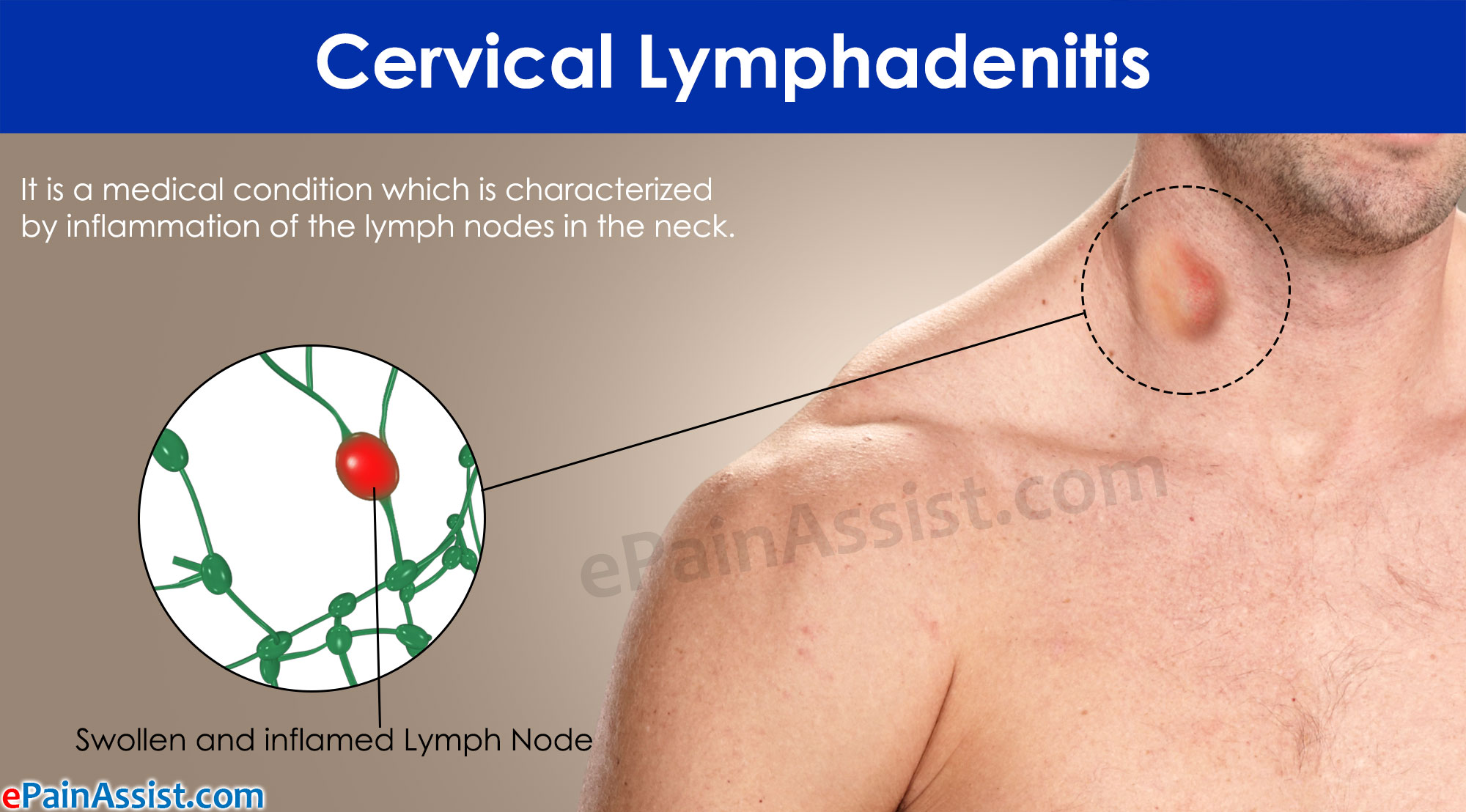What Is Cervical Lymphadenitis?
Cervical Lymphadenitis is a medical condition which is characterized by inflammation of the lymph nodes in the neck. This condition is normally caused due to an infection. The functions of the lymph nodes are to produce WBCs, which are responsible for fighting infections and keeping the body healthy. Cervical Lymphadenitis usually occurs due to infections in the areas of the mouth, throat, ears, or tonsils. It is very common in children.
What Causes Cervical Lymphadenitis?
As stated, Cervical Lymphadenitis is normally caused due to an infection. Some of the infectious causes of Cervical Lymphadenitis are:
- Fungal Infections
- HIV
- Epstein Barr Virus
- Staphylococcus Infection
- Streptococcus Infection
- Tuberculosis
- Upper Respiratory Infections.
Some of the noninfectious causes of Cervical Lymphadenitis are:
- Inflammation due to presence of a foreign body
- Lymphoma
- Metastatic cancers spreading from another source.
What Are The Risk Factors For Cervical Lymphadenitis?
The main risk factor for developing Cervical Lymphadenitis is having a compromised immune system because of which an individual may be prone to frequent infections which can cause Cervical Lymphadenitis.
What Are The Symptoms Of Cervical Lymphadenitis?
Some of the common symptoms of Cervical Lymphadenitis are:
- Swelling of the lymph nodes in neck
- Swelling of the lymph nodes under jaw
- Presence of lumps under skin
- Swelling in the neck
- Pain in the neck
- Facial swelling
- Fever and chills
- Persistent sore throat.
Some of the rare symptoms of Cervical Lymphadenitis are:
- Persistent ear pain
- Dysphagia
- Anorexia
- Persistent fatigue
- Headaches
- Generalized body pains
- Nausea
- Vomiting
- Erythema.
How Is Cervical Lymphadenitis Diagnosed?
To diagnose Cervical Lymphadenitis, the physician will first take a detailed history as to when the symptoms started and the duration of the symptoms to find out if the patient has been prone to frequent infections. The physician will then conduct a detailed physical examination of the neck and throat. If the findings reveal an erythematous throat, swelling of the tonsils, discharge from the tonsils, or swelling of the lymph nodes in the neck then the diagnosis of Cervical Lymphadenitis is virtually confirmed. Some other tests may also be required for confirmation of the diagnosis due to bacterial infection which includes a rapid strep test, CBC, monospot, throat culture, which can confirm the diagnosis of Cervical Lymphadenitis.
How Is Cervical Lymphadenitis Treated?
The basic treatment for Cervical Lymphadenitis is dependent on the underlying cause of the condition. If this condition is caused due to a viral infection then common warm compresses and antiinflammatories are good enough to treat the condition. In case if Cervical Lymphadenitis is caused due to bacterial infection then the patient is treated with antibiotics. If Cervical Lymphadenitis is caused due to metastasis then normal procedures for cancer treatment are followed to treat the condition like chemotherapy and radiation. Some of the medications used for treatment for Cervical Lymphadenitis caused due to viral infections are ibuprofen, ketoprofen, naproxen for pain relief. Some of the antibiotics that are used for Cervical Lymphadenitis caused due to bacterial infection are penicillin, amoxicillin, augmentin, clarithromycin, vancomycin, and rifampin.
Coping Tips For Cervical Lymphadenitis
Some of the ways to cope up with Cervical Lymphadenitis are:
- Applying warm compresses for about half an hour two to three times a day
- Drinking plenty of fluids
- In case of pain and fever using medication like acetaminophen
- Using NSAIDs like ibuprofen for pain relief
- Making sure that the medications are taken at the appropriate doses and the medications are not skipped as it affects the efficacy of the medication
- Make sure to monitor the side effects of any medications that you are taking for treatment of Cervical Lymphadenitis.


